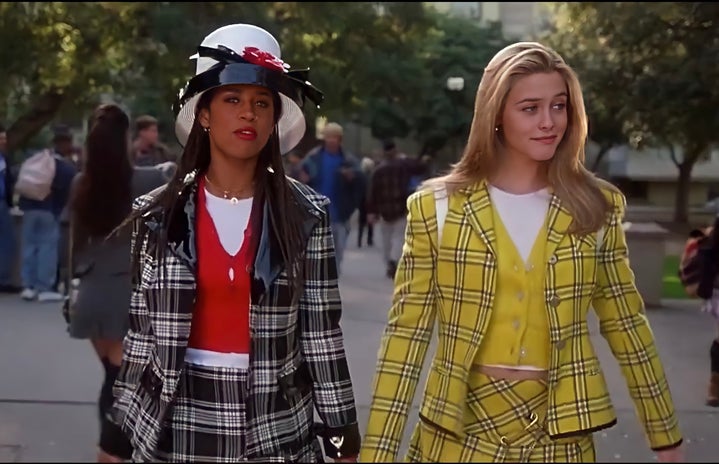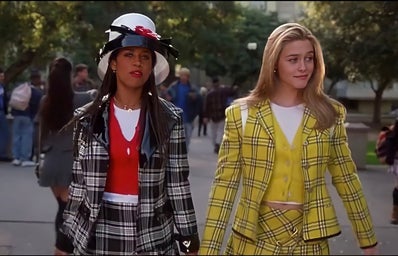With worries from relationships and university life to the persistent crises of housing and climate change, it’s no wonder we all occasionally long for the simpler time of our childhood. Although I now have the freedom to fulfill my prepubescent dreams (typically vague and largely unrealistic, about boy bands), I find myself thinking about my younger self, lying on the floor and dreaming about her future to the soundtracks of pop music, drama, and – most importantly – teen flicks. In this way, teen flicks especially become a time capsule of culture, reminding me of my childhood hopes and dreams, no matter how outlandish they now seem.
The marketability and appeal of remaking teen movies is therefore obvious for many girls in my position. There’s something about these films particular to the female experience – not just their relatable characters and plotlines, but their unifying effect on millions of girls. The mid-2000s trend of rom-coms weren’t examples of perfect feminism by any means (i.e Bridget Jones’ Diary, where we’re meant to believe that Renee Zwelleger isn’t incredibly attractive), but they did cater to a largely female audience. In recent years, however, with the astronomical success of male-led Marvel movies and thrillers, the art of the “girly teen” movie seems to be lost nowadays. .
The rise of streaming services like Netflix and Hulu providing media content at a rapid pace is partly to blame. It is no longer profitable for production companies to promote the classic story of the “girl next door”– not when there’s a phallocentric superhero blockbuster with a guaranteed audience to make! Studies from Harvard Business Review show that the action movie genre has grossed over $17 billion in less than a decade, leading to what critics have described as a “creative bankruptcy”. Thus, streaming services share great responsibility in upholding the chick flick market – which is perhaps an impossible task. The instant access to thousands of shows at any possible moment frankly does not suit the art it is selling. A key reason these films hold such nostalgia for us is because of the memories we associate with watching them such as playing Mean Girls in the background of our birthday sleepovers, Clueless with your mum after a breakup. These cherished experiences can be lost when everything is available to you in the snap of a finger.
As established, the shear rate at which streaming services churn out media leads to an influx of mediocre art. Even when it occasionally creates a gem, it cannot help but to merchandise and milk it dry – Netflix’s To All the Boys I’ve Loved Before, for example, attracted 80 million viewers within its’ first year and was touted as “revitalising the rom-com genre”. Three years later, it had 2 unremarkable sequels, H&M line, and spin-off series that faded into obscurity. It’s clear hype is only really generated around remakes of things we’re already comfortable with.
It’s a complicated cycle when film studios announce a remake of a modern classic. There are the inevitable social media trolls, who believe everything new is worse or “woke”, there are adults excited for the nostalgia, and – altogether – an awful lot of focus on the casting. A new twist is marketed – it’s Freaky Friday but all grown up, White Chicks but Asian, and even High School Musical, the Musical: The Series (real catchy). We see these updates, let them excite or annoy us, and absorb the advertisements. Thus, our interest is piqued. Yet, deep down we know that it will probably never live up to our expectations – how could they, when we watch them in this new, adult skin?
Growing older than your favourite high school protagonist is somewhat of a wake-up call. You might feel jealousy watching their problems resolved in a tight 90 minutes because – let’s be honest – it never worked out that way for you. But it’s not all bad. After all, movies that we consider teen classics were often heavily inspired by other pre-loved classics – 10 Things I Hate About You is a reimagining of Shakespeare’s Taming of the Shrew, and Clueless a direct homage to Jane Austen’s Emma. Art is always being reworked and developed; and it’s human nature to evolve. Thus, while one may be rightly cynical in the face of corporate revamps, there is a small part of us deeply interested. Maybe, then, it’s time we learn to make peace with it, letting our inner children get excited all over again.


